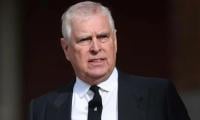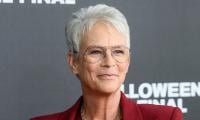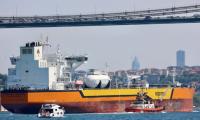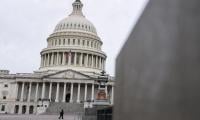Females with disabilities experience discrimination on multiple levels
Islamabad
An estimated 9 million persons with disabilities are forcibly displaced worldwide as a result of persecution, conflict and generalized violence.
The issue was discussed at a training titled 'Strengthening the Role of Women with Disabilities in Humanitarian Action' organised by National Forum of Women with Disabilities (NFWWD) and Special Talent Exchange Programme (STEP) with the support of Women Refugee Commission. Women with disabilities from KP, Punjab and Sindh participated in the training.
The speakers shared that persons with disability are among the most ‘at-risk’ and socially excluded groups in any refugee and displaced community. They are often not identified in data collection or included in needs assessments, and thus not considered in program design or implementation.
“Increasingly, women and girls with disabilities are understood to experience multiple and intersecting levels of discrimination, based on age, gender and disability, and other factors such as nationality and socioeconomic status. This discrimination is exacerbated in conflict and displacement situations, where they face a variety of human rights violations, including violence, abuse and exploitation,” said Chief Executive Officer NFWWD Abia Akram.
She said women-led, community-based organisations, such as organisations of women with disabilities, when provided space and opportunity, can play a critical role in supporting humanitarian actors to effectively incorporate the concerns of women and girls with disabilities in protection strategies and to mitigate risks to themselves and their communities.
This training was aimed at strengthening the understanding of the humanitarian system, identifying gaps and opportunities for inclusion of women and girls with disabilities in humanitarian action and developing key advocacy messages to strengthen inclusion of women and girls with disabilities in humanitarian action.
Around 30 participants from Khyber Pakhtunkhwa, Punjab, Sindh and Islamabad participated in the training. The trainers gave an introduction of humanitarian crisis and how it affects women and girls with disabilities. The participants brainstormed about the changes that women with disabilities would like to see in humanitarian action at community, national and international level. The participants also identified the issues important to women and girls with disabilities in humanitarian crises.
The key facilitators of the training included Hadia Nusrat from UN Women, Sameen from UN OCHA, Shumaila Zaib from UNHCR, Munazza Gillani from Sightsavers, Atif Shiekh from STEP, Zahida from NFWWD, Nasreen Aziz from NFWWD, Afshan Afridi from NFWWD and AbiaAkram from NFWWD.
-
 T.I. Says Sons Crossed A Line During His Feud With 50 Cent
T.I. Says Sons Crossed A Line During His Feud With 50 Cent -
 Brooklyn Beckham Ignores Victoria, David Peace Call, Responds To Nicola Peltz Instead
Brooklyn Beckham Ignores Victoria, David Peace Call, Responds To Nicola Peltz Instead -
 Prince Harry, Meghan Markle Can No Longer Be ‘DIY Royals’
Prince Harry, Meghan Markle Can No Longer Be ‘DIY Royals’ -
 Keke Palmer Gets Candid About 'dehumanizing' Child Star Experience
Keke Palmer Gets Candid About 'dehumanizing' Child Star Experience -
 Shamed Andrew Brand ‘most Arrogant’ By Diana Bodyguard
Shamed Andrew Brand ‘most Arrogant’ By Diana Bodyguard -
 Daniel Radcliffe Welcomes New 'Harry Potter' Era, Says It's Time To 'pass It On'
Daniel Radcliffe Welcomes New 'Harry Potter' Era, Says It's Time To 'pass It On' -
 AI Rivalry: Anthropic Investors Push To De-escalate Pentagon Clash Over AI Safeguards, Sources Say
AI Rivalry: Anthropic Investors Push To De-escalate Pentagon Clash Over AI Safeguards, Sources Say -
 Selena Gomez Reveals Handmade Birthday Gift Taylor Swift Created For Her
Selena Gomez Reveals Handmade Birthday Gift Taylor Swift Created For Her -
 Jamie Lee Curtis Doubles Down On Her Assertion About 'The Bear's Imminent End
Jamie Lee Curtis Doubles Down On Her Assertion About 'The Bear's Imminent End -
 Nicole Kidman Reacts To Daughters' Possible Future In Hollywood
Nicole Kidman Reacts To Daughters' Possible Future In Hollywood -
 Harry Styles Weighs In On The Origins Of His Muse While Talking About 'Carla’s Song' From Upcoming Album
Harry Styles Weighs In On The Origins Of His Muse While Talking About 'Carla’s Song' From Upcoming Album -
 Alarming: New Research Suggests Global Sea Levels Have Been Underestimated Due To Flawed Modelling
Alarming: New Research Suggests Global Sea Levels Have Been Underestimated Due To Flawed Modelling -
 Jason Biggs Speaks Of A Possible American Pie Sequel
Jason Biggs Speaks Of A Possible American Pie Sequel -
 Meghan Markle Elated As ‘As Ever’ Proves To Be ‘double Edged Sword’
Meghan Markle Elated As ‘As Ever’ Proves To Be ‘double Edged Sword’ -
 Gulf Shipping Crisis Deepens Amid Geopolitical Tensions: Can Global Powers Manage Oil Supply Shortfall?
Gulf Shipping Crisis Deepens Amid Geopolitical Tensions: Can Global Powers Manage Oil Supply Shortfall? -
 Nicole Kidman Suffers From An Alarming Condition As She Experiences Emotional Fallout Amid Keith Urban Split
Nicole Kidman Suffers From An Alarming Condition As She Experiences Emotional Fallout Amid Keith Urban Split



